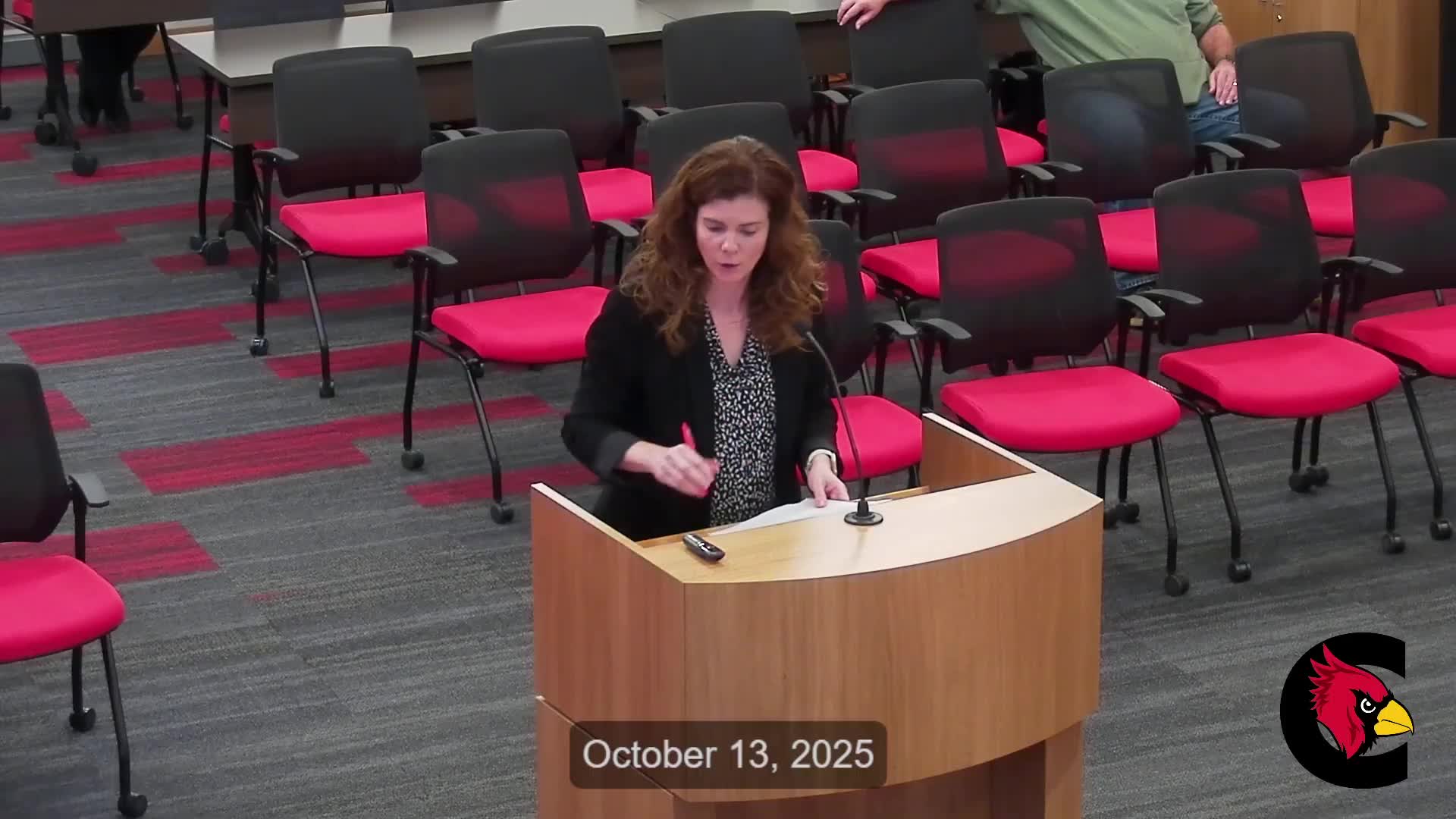Crete Public Schools director outlines special education caseloads, Medicaid reimbursements and system changes
Get AI-powered insights, summaries, and transcripts
Subscribe
Summary
Director of Student Services Katie Bevins told the Crete Public Schools Board the department served 301 students in special education on the Oct. regular count, highlighted $2.8 million in Medicaid reimbursement for 2023–24 and proposed moving special-education records from SRS to Infinite Campus.
Katie Bevins, director of student services for Crete Public Schools, presented the department’s annual update at the district’s October 2025 regular board meeting, reporting student counts, funding sources and planned system changes.
Bevins told the board the district’s Oct. 1 special-education count was 301 students across kindergarten through young adult programs, with preschool enrollment at 56 and early-intervention (birth–3) enrollment at 25. She said new referrals last school year included 39 overall and 22 for preschool-aged children.
The nut of Bevins’s presentation was funding. She said the district reported $2,800,000 in Medicaid reimbursement for the 2023–24 school year and described that as an approximately 80% reimbursement rate for billable services. Bevins also described the district’s relationship to IDEA (the federal Individuals with Disabilities Education Act), noting that “maintenance of effort” (MOE) must be met to remain eligible for the formula grant.
Bevins reviewed other program and grant support for student services: PEAK funds used for professional development, a new Flex funding source supporting K–5 reading intervention staff, Sixpence early-childhood programming (capacity 45 families and often waitlisted), and a partnership with the district’s Foundation and Children’s Hospital for virtual health services. She said the district coordinates nonpublic IDEA funds with St. James to serve eligible students.
On systems, Bevins said Crete currently uses SRS, a Nebraska-only special-education records system, and proposed migrating to Infinite Campus to consolidate student records. She described staff reaction as positive and said Infinite Campus already has the required functionality. Bevins said the change would reduce duplication and integrate special-education records with the district’s primary student information system.
Bevins highlighted program outcomes and compliance: the district earned the highest Nebraska accountability rating on special-education data elements (“meets requirements”), a “no risk” determination on its targeted improvement plan, and compliance on federal IDEA indicators including indicator 11 and anticipated compliance on indicator 13. She said the district currently remains below the 1% threshold for alternate assessment criteria.
Bevins named key staff leading work inside student services (MTSS coordinator Crystal Schilling; crisis team lead Michael Renner; head nurse Jesse Hermann; Sixpence lead Danielle [last name not specified]; transition lead Dr. Tessa Peter Wright; and early-childhood co-lead Sarah Sell) and described ongoing professional learning, expanded prevention services, and monthly data-driven team meetings.
Bevins closed by inviting questions from the board.
Ending: The board did not take formal action on the report; Bevins’s update provided background material the district can use for budget planning and the planned Infinite Campus migration will return to the board when more specifics and costs are available.
